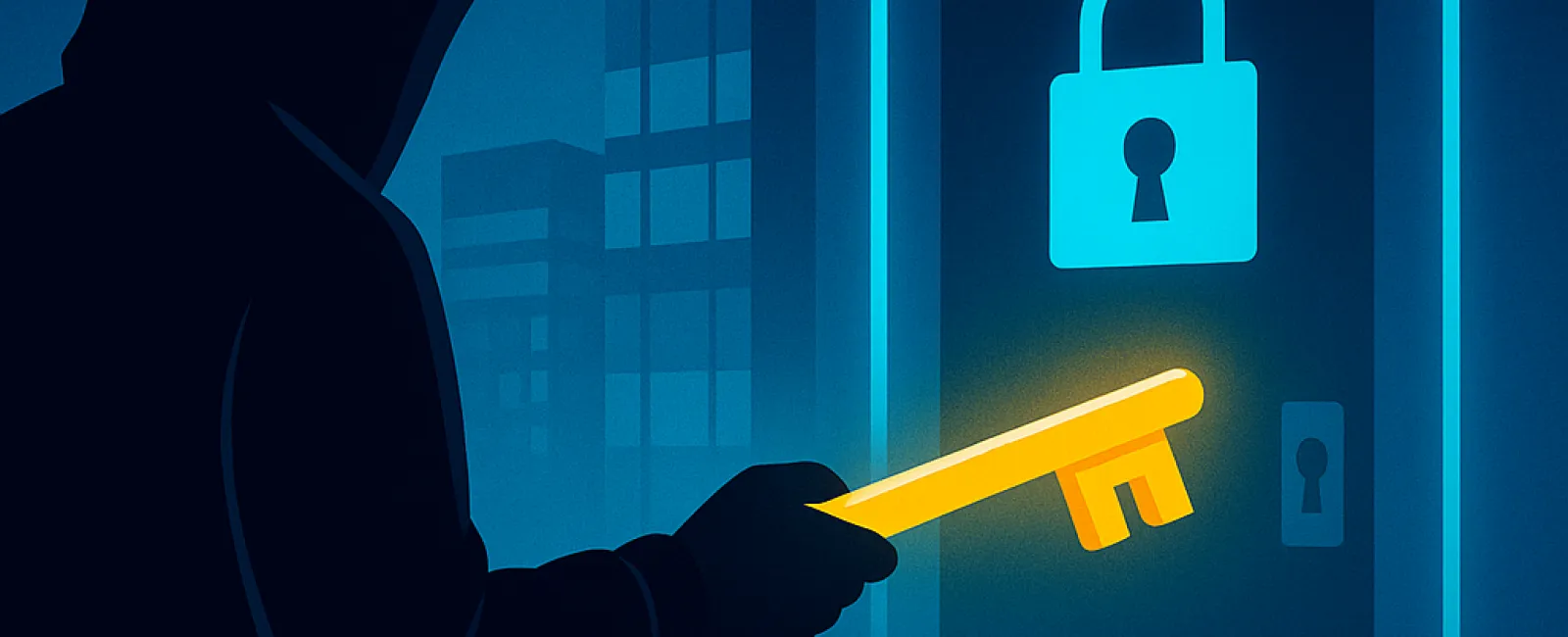August 04, 2025
When most folks picture a hacker, they imagine someone "breaking in" through a firewall or brute-forcing their way into a system.
But these days? They're not kicking down the door.
They're walking in with a stolen key—your login.
It's called an identity-based attack, and it's now one of the most common ways hackers hit small businesses. Instead of forcing their way in, they trick someone into handing over credentials—or steal them outright.
And unfortunately, it's working.
In 2024 alone, over two-thirds of serious cyber incidents started with stolen logins. That includes some big names like MGM and Caesars. If they can fall for it, smaller businesses sure can too.
How Hackers Are Getting In
Most attacks start simple—like a stolen password. But the methods are getting sneakier by the day:
- 🎣 Phishing emails and fake login pages that look real enough to fool just about anyone
- 📱 SIM swapping to hijack your text messages and 2FA codes
- 🔁 MFA fatigue attacks, where they flood your device with login requests until you accidentally hit "approve"
- 🧩 Third-party weak spots—like your help desk, call center, or even employee personal devices
They're not always coming after you directly. Sometimes they come in through someone connected to you.
How to Shut the Door on Identity-Based Attacks
You don't need to be a tech wizard to protect your business. Just a few smart moves go a long way:
✅ Turn On MFA (the right kind)
Multifactor authentication gives you that extra layer of protection. But skip the text message version—app-based or hardware security keys are much stronger.
✅ Train Your Team
Most breaches start with one click. Show your people how to spot scams, fake emails, and suspicious login pages.
✅ Limit Access
Not everyone needs access to everything. Lock down permissions so if one account gets compromised, it doesn't bring the whole house down.
✅ Go Passwordless (or at least stronger)
Encourage password managers, biometric logins, or security keys. Fewer passwords = fewer chances to get phished.
Bottom Line: Hackers Are Playing Smarter
And that means we've got to be smarter, too.
They're not busting down the front door anymore—they're looking for someone to open it for them.
We can help you shut it, lock it, and hang a "Not Today" sign right on the handle.
👉 Want to know if your business is vulnerable?
Book a FREE Discovery Call and let's take a look together.


